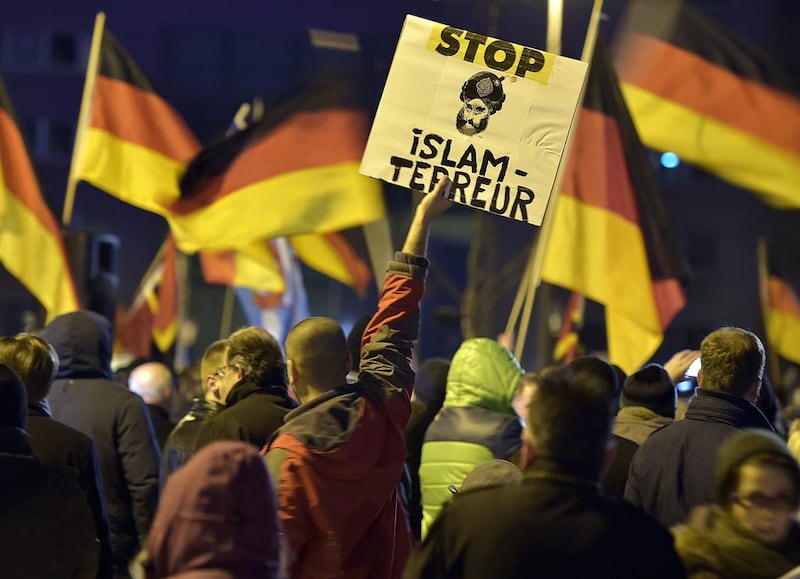What should be made of the rise of the Patriotic Europeans against the Islamification of the West movement? Pegida, the group’s acronym in German, started with a few hundred demonstrators in October but culminated this week in an estimated 18,000 supporters marching in Dresden.
Groups of this ilk – anti-immigrant and foreigner-hating – tend to emerge most strongly during an economic downturn and it is no coincidence that extreme right parties have been ascendant in Europe since the start of the global financial crisis in 2008. It is worth noting that Pegida’s heartland is in the former East Germany, which is still stuck at a lower income level and higher unemployment rate than West Germany 25 years after the fall of the Berlin Wall. Although Germany is doing better than most Eurozone countries, economic growth remains weak and there are signs that the bloc of 19 countries will fall back into recession. Only Lithuania, which joined on January 1, and Ireland are predicting strong growth this year.
But the Eurozone’s economic malaise is hardly the sole – or even the main – cause of Pegida’s rise. Germany has taken in a disproportionate share of Syrians seeking refuge in Europe from the civil war at home, although the UNHCR figure of 19,000 is still tiny for a country of 80 million. Pegida organisers dispute the official number of Muslims in Germany, claiming that mainstream politicians have manipulated the figures.
For Germany, Pegida’s rise carries uncomfortable echoes of its own history. Unsurprisingly, condemnation of Pegida has come swiftly and from the highest levels.
Chancellor Angela Merkel used her new year speech to decry the “prejudice, coldness, even hatred” espoused by the group. There is also popular pushback. When the group staged a rally in Cologne on Monday night, the city’s landmark cathedral opted to extinguish its lights in protest. The estimated 250 Pegida supporters found themselves outnumbered more than 10 to one by opponents. What is now needed is for the tolerant majority to ensure that its voice is consistently heard above the noisy rabble-rousing minority.





